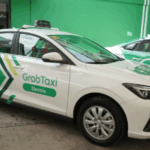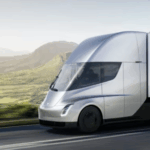NEW YORK (AP) — Tesla’s sales have experienced a significant drop in the last quarter, with a 13% decline attributed to ongoing boycotts linked to CEO Elon Musk’s political affiliations. The company reported a decrease in sales from 443,956 units last year to 384,122 units in the April through June period of this year. This decline highlights the lasting impact of Musk’s support for controversial political figures, including former U.S. President Donald Trump and far-right politicians in Europe.
The announcement comes as Tesla faces intensified competition from other electric vehicle (EV) manufacturers who are eager to capitalize on the company’s current vulnerabilities. Analysts suggest that Tesla’s upcoming quarterly earnings report could reflect further financial challenges.
Market Dynamics and Competitive Landscape
Despite the overall decline, Tesla’s Models 3 and Y exceeded Wall Street expectations, with sales totaling 373,728 units compared to the forecasted 356,000. This positive note led to a 3.7% rise in Tesla’s share price during morning trading. However, experts like Seth Goldstein from Morningstar caution that the company’s current product lineup may have reached market saturation, necessitating the introduction of new, more affordable models to sustain growth.
“The numbers weren’t as bad as thought with all the analyst forecast cuts we saw over the past week,” said Goldstein, while acknowledging the significant challenges Tesla faces.
Meanwhile, Tesla’s rivals are making strategic moves to capture market share, particularly in Europe. In May, Tesla’s sales in 30 European countries plummeted by 28%, even as the overall market for EVs expanded. Chinese automaker BYD, among others, has been particularly successful in encroaching on Tesla’s territory.
Political Controversies and Impact on Brand
Musk’s political activities continue to influence Tesla’s market performance. His recent criticism of Trump’s budget bill resulted in a public threat from the former president to leverage his office against Musk’s businesses, including Tesla. This political tussle contributed to a more than 5% drop in Tesla’s stock.
Musk has acknowledged the negative impact of his political engagements, including his tenure as head of the Department of Government Efficiency and his support for far-right European candidates. However, he also attributes the sales decline to customers delaying purchases in anticipation of new Model Y versions.
Innovation and Regulatory Challenges
In a bid to shift focus, Tesla is investing heavily in autonomous driving technologies and robotaxis. The company is currently testing these innovations in Austin, Texas, with mixed results. While the trials have generally proceeded smoothly, they have attracted scrutiny from federal safety regulators due to incidents like a robotaxi driving in the wrong lane.
As Tesla navigates these challenges, the company is expected to report its second-quarter financial results on July 23. The first quarter saw a dramatic 71% drop in net income, raising questions about the sustainability of its current business strategies.
Looking Ahead
With the promise of a more affordable EV model on the horizon, Tesla aims to regain its footing in the competitive EV market. However, the company must also address the broader implications of its CEO’s political stance and the increasing pressure from global competitors.
As the EV market continues to evolve, Tesla’s ability to adapt will be crucial in determining its future trajectory. The upcoming financial report will offer further insights into the company’s performance and strategic direction.
About The Author
 Grab Expands Electric Taxi Fleet in Manila and Singapore, Pioneering Sustainable Urban Transport
Grab Expands Electric Taxi Fleet in Manila and Singapore, Pioneering Sustainable Urban Transport Microsoft Announces 9,000 Job Cuts Amid AI Investment Surge
Microsoft Announces 9,000 Job Cuts Amid AI Investment Surge Tesla’s Q2 2025 Deliveries Fall Short Amidst Growing Competition from GM
Tesla’s Q2 2025 Deliveries Fall Short Amidst Growing Competition from GM US Judge Orders Huawei to Face Racketeering and Fraud Charges
US Judge Orders Huawei to Face Racketeering and Fraud Charges Bay Area Residents Among Hundreds Charged in $14.6 Billion Health Fraud Crackdown
Bay Area Residents Among Hundreds Charged in $14.6 Billion Health Fraud Crackdown